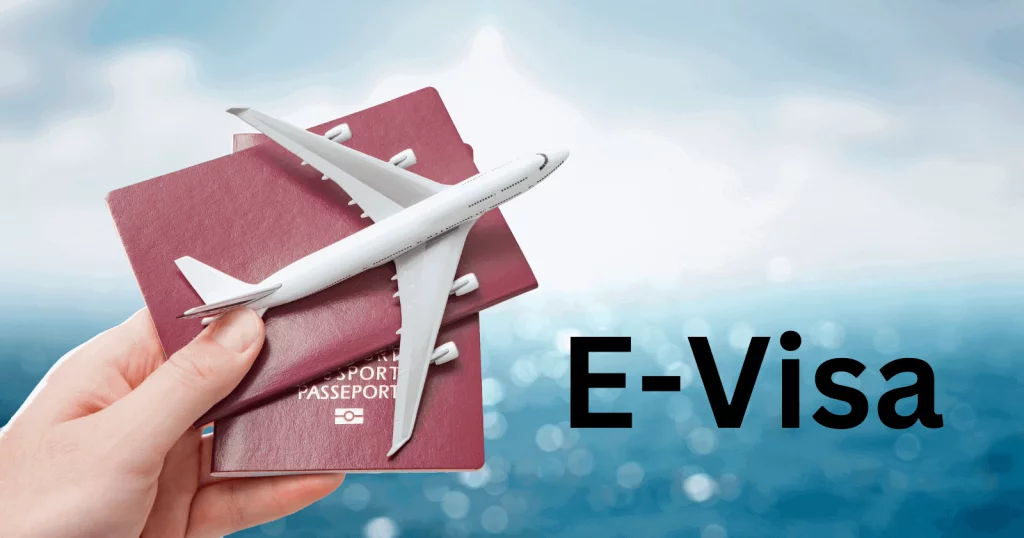Traveling to Kenya offers a unique opportunity to explore East Africa’s diverse landscapes, vibrant cultures, and rich wildlife. Whether you are coming for a safari, business, research, or to visit family, it’s important to understand the country’s visa system and the available options for extending your stay. Kenya’s immigration regulations are designed to accommodate various types of visitors while maintaining clear and structured policies. To ensure a smooth experience, travelers must familiarize themselves with the available KENYA VISA TYPES and the process for obtaining a KENYA VISA EXTENSION should they wish to stay longer than initially planned.
Understanding the Different Kenya Visa Types
Kenya offers a range of visa types to cater to the specific needs of travelers. These visa categories are tailored to ensure that visitors enter the country for the right reasons and comply with immigration requirements. Among the most common visas are the tourist visa, business visa, transit visa, student visa, and work permits. Each of these comes with specific conditions regarding eligibility, validity period, and permitted activities.
The tourist visa is perhaps the most widely used, issued to individuals visiting Kenya for leisure, family visits, or sightseeing. This visa generally allows a stay of up to 90 days and can be obtained online before arrival. The business visa is granted to those entering Kenya for official business meetings, conferences, or short-term assignments, without engaging in employment or local remuneration. Transit visas are issued to travelers connecting through Kenya to a third destination and are typically valid for stays of up to 72 hours.
In addition to these, Kenya also offers special visa categories such as the East Africa Tourist Visa, which allows travel between Kenya, Uganda, and Rwanda under a single visa. Students and researchers intending to stay longer must apply for a student visa or research permit, while professionals seeking employment need to go through the work permit process, which involves more rigorous documentation and employer sponsorship.
Knowing which visa to apply for is critical. Choosing the wrong category may result in denial of entry, fines, or even deportation. That’s why understanding the various KENYA VISA TYPES is essential for anyone planning a visit to the country, whether short-term or long-term.
Extending Your Stay: Kenya Visa Extension Process
Many travelers fall in love with Kenya’s breathtaking scenery and hospitality and decide they need more time. Fortunately, the Kenyan government offers a clear process for visa extensions, allowing eligible visitors to remain in the country longer than originally planned. The KENYA VISA EXTENSION option provides travelers with the flexibility to adjust their plans without leaving the country.
Extensions are typically granted in increments of 90 days and are subject to approval by Kenya’s immigration department. In total, a tourist visa can often be extended once, giving a maximum stay of 180 days. However, the ability to extend depends on the visa type, the applicant’s compliance with immigration rules, and whether they have previously overstayed or violated terms of entry.
To apply for an extension, visitors must access the online eCitizen portal, where they submit an application along with supporting documents such as a copy of their current visa, passport bio-data page, and justification for the extension. The process also includes a payment fee, which varies depending on the duration of the extension and the applicant’s visa category.
In some cases, travelers may be asked to present themselves at the immigration office in Nairobi or Mombasa for an in-person interview or biometric verification. It is strongly advised to begin the extension process at least two weeks before the visa’s expiry date to avoid penalties or legal issues.
A visa extension is not a guarantee, and approval is at the discretion of immigration authorities. Applicants with a history of overstaying or those unable to provide sufficient reason for prolonging their stay may be denied an extension. Therefore, it is important to apply early and follow all instructions carefully.
Key Considerations for Visitors Planning Long-Term Travel
For individuals considering a long-term stay in Kenya, it is crucial to plan accordingly. Not all visas can be extended, and some require conversion into residency or special permits. For example, someone initially entering the country on a tourist visa who later decides to start a business or seek employment must leave Kenya and reapply for the appropriate visa or permit from abroad.
Those involved in volunteer work, missionary activities, or long-term academic projects should ensure they obtain the right entry documents before traveling. Failure to do so may result in denied extensions or future travel restrictions.
Additionally, maintaining legal status throughout your stay is not only a legal requirement but also essential for accessing other services in the country. Whether it’s opening a bank account, registering for healthcare, or signing a lease, your immigration status plays a central role.
Conclusion: Planning Ahead for a Seamless Kenyan Experience
Kenya remains one of the most welcoming countries in Africa, with a visa system that accommodates the needs of various types of travelers. Understanding the full range of KENYA VISA TYPES helps ensure that you apply for the correct visa based on your travel intentions. And if your plans change while you’re in the country, the KENYA VISA EXTENSION process offers a legal pathway to prolong your stay.
Staying informed, planning ahead, and respecting immigration procedures will not only help you avoid legal complications but also enhance your overall experience in Kenya. Whether you’re soaking in the beauty of the Maasai Mara or attending international business forums in Nairobi, the right visa ensures that your journey continues without interruption.Traveling to Kenya offers a unique opportunity to explore East Africa’s diverse landscapes, vibrant cultures, and rich wildlife. Whether you are coming for a safari, business, research, or to visit family, it’s important to understand the country’s visa system and the available options for extending your stay. Kenya’s immigration regulations are designed to accommodate various types of visitors while maintaining clear and structured policies. To ensure a smooth experience, travelers must familiarize themselves with the available KENYA VISA TYPES and the process for obtaining a KENYA VISA EXTENSION should they wish to stay longer than initially planned.
Understanding the Different Kenya Visa Types
Kenya offers a range of visa types to cater to the specific needs of travelers. These visa categories are tailored to ensure that visitors enter the country for the right reasons and comply with immigration requirements. Among the most common visas are the tourist visa, business visa, transit visa, student visa, and work permits. Each of these comes with specific conditions regarding eligibility, validity period, and permitted activities.
The tourist visa is perhaps the most widely used, issued to individuals visiting Kenya for leisure, family visits, or sightseeing. This visa generally allows a stay of up to 90 days and can be obtained online before arrival. The business visa is granted to those entering Kenya for official business meetings, conferences, or short-term assignments, without engaging in employment or local remuneration. Transit visas are issued to travelers connecting through Kenya to a third destination and are typically valid for stays of up to 72 hours.
In addition to these, Kenya also offers special visa categories such as the East Africa Tourist Visa, which allows travel between Kenya, Uganda, and Rwanda under a single visa. Students and researchers intending to stay longer must apply for a student visa or research permit, while professionals seeking employment need to go through the work permit process, which involves more rigorous documentation and employer sponsorship.
Knowing which visa to apply for is critical. Choosing the wrong category may result in denial of entry, fines, or even deportation. That’s why understanding the various KENYA VISA TYPES is essential for anyone planning a visit to the country, whether short-term or long-term.
Extending Your Stay: Kenya Visa Extension Process
Many travelers fall in love with Kenya’s breathtaking scenery and hospitality and decide they need more time. Fortunately, the Kenyan government offers a clear process for visa extensions, allowing eligible visitors to remain in the country longer than originally planned. The KENYA VISA EXTENSION option provides travelers with the flexibility to adjust their plans without leaving the country.
Extensions are typically granted in increments of 90 days and are subject to approval by Kenya’s immigration department. In total, a tourist visa can often be extended once, giving a maximum stay of 180 days. However, the ability to extend depends on the visa type, the applicant’s compliance with immigration rules, and whether they have previously overstayed or violated terms of entry.
To apply for an extension, visitors must access the online eCitizen portal, where they submit an application along with supporting documents such as a copy of their current visa, passport bio-data page, and justification for the extension. The process also includes a payment fee, which varies depending on the duration of the extension and the applicant’s visa category.
In some cases, travelers may be asked to present themselves at the immigration office in Nairobi or Mombasa for an in-person interview or biometric verification. It is strongly advised to begin the extension process at least two weeks before the visa’s expiry date to avoid penalties or legal issues.
A visa extension is not a guarantee, and approval is at the discretion of immigration authorities. Applicants with a history of overstaying or those unable to provide sufficient reason for prolonging their stay may be denied an extension. Therefore, it is important to apply early and follow all instructions carefully.
Key Considerations for Visitors Planning Long-Term Travel
For individuals considering a long-term stay in Kenya, it is crucial to plan accordingly. Not all visas can be extended, and some require conversion into residency or special permits. For example, someone initially entering the country on a tourist visa who later decides to start a business or seek employment must leave Kenya and reapply for the appropriate visa or permit from abroad.
Those involved in volunteer work, missionary activities, or long-term academic projects should ensure they obtain the right entry documents before traveling. Failure to do so may result in denied extensions or future travel restrictions.
Additionally, maintaining legal status throughout your stay is not only a legal requirement but also essential for accessing other services in the country. Whether it’s opening a bank account, registering for healthcare, or signing a lease, your immigration status plays a central role.
Conclusion: Planning Ahead for a Seamless Kenyan Experience
Kenya remains one of the most welcoming countries in Africa, with a visa system that accommodates the needs of various types of travelers. Understanding the full range of KENYA VISA TYPES helps ensure that you apply for the correct visa based on your travel intentions. And if your plans change while you’re in the country, the KENYA VISA EXTENSION process offers a legal pathway to prolong your stay.
Staying informed, planning ahead, and respecting immigration procedures will not only help you avoid legal complications but also enhance your overall experience in Kenya. Whether you’re soaking in the beauty of the Maasai Mara or attending international business forums in Nairobi, the right visa ensures that your journey continues without interruption.


